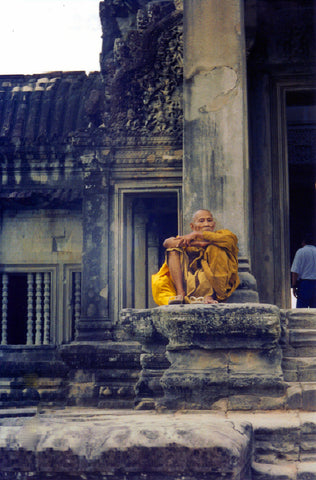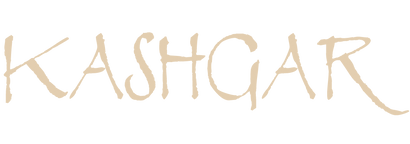Your Cart is Empty
Free Shipping for orders over $49 in Australia, $199 IN NEW ZEALAND/USA/CANADA AND $249 REST OF THE WORLD
Free Shipping for orders over $49 in Australia, $199 IN NEW ZEALAND/USA/CANADA AND $249 REST OF THE WORLD
Add description, images, menus and links to your mega menu
A column with no settings can be used as a spacer
Link to your collections, sales and even external links
Add up to five columns
Add description, images, menus and links to your mega menu
A column with no settings can be used as a spacer
Link to your collections, sales and even external links
Add up to five columns
I Was Ready to Sink Into the Earth with Shame...
by Linda Heaphy May 10, 2017
By the 2nd century AD the city of Dunhuang, situated at the junction between the northern and western Silk Roads, had a population of more than 76,000 and was a key supply base for caravans that passed through the city on the arduous journey across the desert, and for those arriving from the west looking to resupply.

By the 9th Century AD, the civil service in Dunhuang was so sophisticated that the city's Bureau of Etiquette felt the need to create a series of form letters for use in various social situations, the most interesting of which was the one used to send apologies to offended dinner hosts.

Translated Transcript
Yesterday, having drunk too much, I was intoxicated as to pass all bounds; but none of the rude and coarse language I used was uttered in a conscious state. The next morning, after hearing others speak on the subject, I realised what had happened, whereupon I was overwhelmed with confusion and ready to sink into the earth with shame.
Isn't that sweet?
The scroll was discovered, alongside thousands of other documents, in a sealed cave library in Dunhuang, and can be viewed here. If you would like to know more about the incredible work being carried out at Dunhuang, visit the International Dunhuang Project website and their most excellent educational resource The Silk Road: Trade, Travel, War and Faith. Our thanks to the guys at Letters of Notefor their translation of the text.
1 Response
Leave a comment
Comments will be approved before showing up.
Also in History

What in the World About Mao: Transformation of Mao Zedong from Tyrant to Pop Icon is Nearly Complete
by Linda Heaphy May 10, 2017
Read More Articles
About the Author
- Linda has a Honours degree in Marine Biology and a PhD in Ecology from the University of NSW, Australia. She has travelled extensively and is a passionate writer on subjects as diverse as the role played by women throughout history, tribal communities and their customs, symbology and ethnology, talismans and their history. Occasionally she also writes about her travel experiences, her new life on a 25 acres in the Northern Rivers region of northern Australia and her black miniature poodle Phoenix. She is currently writing her first book on talismans.
About Us
-
The Kashgar Philosophy

Kashgar began through a love of travel.
In 1989 my father Bernard packed in his house painting business and set off for two years on a backpacking trek to the remotest corners of the world. When he finally arrived in the oasis city of Kashgar, China, he was so impressed with its history that he decided to start a new life collecting and selling exotic goods from all over the world. For 2000 years the legendary city of Kashgar was a melting pot of ideas and a key trading post on the historic Silk Road. It was this unique combination of philosophy and trade that my father wanted to recreate at home.
Starting in markets in 1991, he opened his first store in the Sydney suburb of Newtown in 1994. I gave up my own career as a government scientist to join him in 2000 and soon convinced my partner Ian to join us in what was to become the Family Business.
Today our version of Kashgar stocks a hugely diverse range of furniture, rugs, textiles, antiques, handicrafts and jewellery sourced from over twenty different countries including India, Nepal, Tibet, China, Thailand, Burma, Laos, the Philippines, Vietnam, Mexico, Peru, Turkey, Palestine, Syria, Afghanistan and Turkmenistan. Our collection includes contemporary and tribal silver and gold jewellery, a unique range of headhunting curios, antique Buddhist relics and a collection of one-off necklaces, earrings and bracelets that I design and create myself using the beads and jewellery making techniques of ethnic minorities from around the globe.
Kashgar is a philosophy as well as a store. We are committed to supporting traditional artisans and small village communities by selling authentic handcrafted goods which are personally collected by us. By supporting traditional methods of design and production we hope to encourage local cottage industries which have a low impact on the environment and help ethnic minorities maintain their self-sufficiency into the 21st Century. We are particularly committed to assisting women around the world and to this end have worked with several organisations including the Hua Bin Women's Union of Vietnam, the East Timorese Women's Association and Tikondane in Zambia. Time honoured means of craftsmanship and traditional ways of life are disappearing as people all over the world give up their identity in favour of jeans and T-shirts. We see our trade as a means of staving off the inevitable encroachment of the 21st century, assisting communities to decide for themselves which parts of the western world they wish to incorporate (medicine, education) and which they wish to reject (prostitution, drug production, begging and servitude to warlords). We encourage our customers to think of the handicrafts and artifacts they buy from us as an investment: a piece of history and a way of life that may soon be gone forever.
Kashgar has recently closed its retail outlet and gone completely online.
In the past our pieces appeared in many movies including The Hobbit, Mission Impossible 2, Queen of the Damned, Scooby Doo, Moulin Rouge and Wolverine, and in many televisions series, as well as in plays, commercials and exhibitions. We've found special pieces for individual customers as well as for film sets, event management companies, hotels, businesses, consulates and embassies. The uniqueness of our stock means that we are also very appealing to interior and fashion designers with a taste for the exotic.
There is something for everyone at Kashgar - collectors, the curious, those looking for a special present or for something unique to adorn the home. Most of our items are one-off specialties; other pieces we only stock in small quantities so as to continuously offer a wide and ever-changing range of interesting products. We are also packed with ideas for decorating home and work premises that will challenge your established concepts of design and storage.

Please enjoy - Linda Heaphy
Become a Kashgar nomad and join our mailing list...
Sign up to get the latest on sales, new releases and more …





Noonerboy
December 12, 2018
Very cool👍